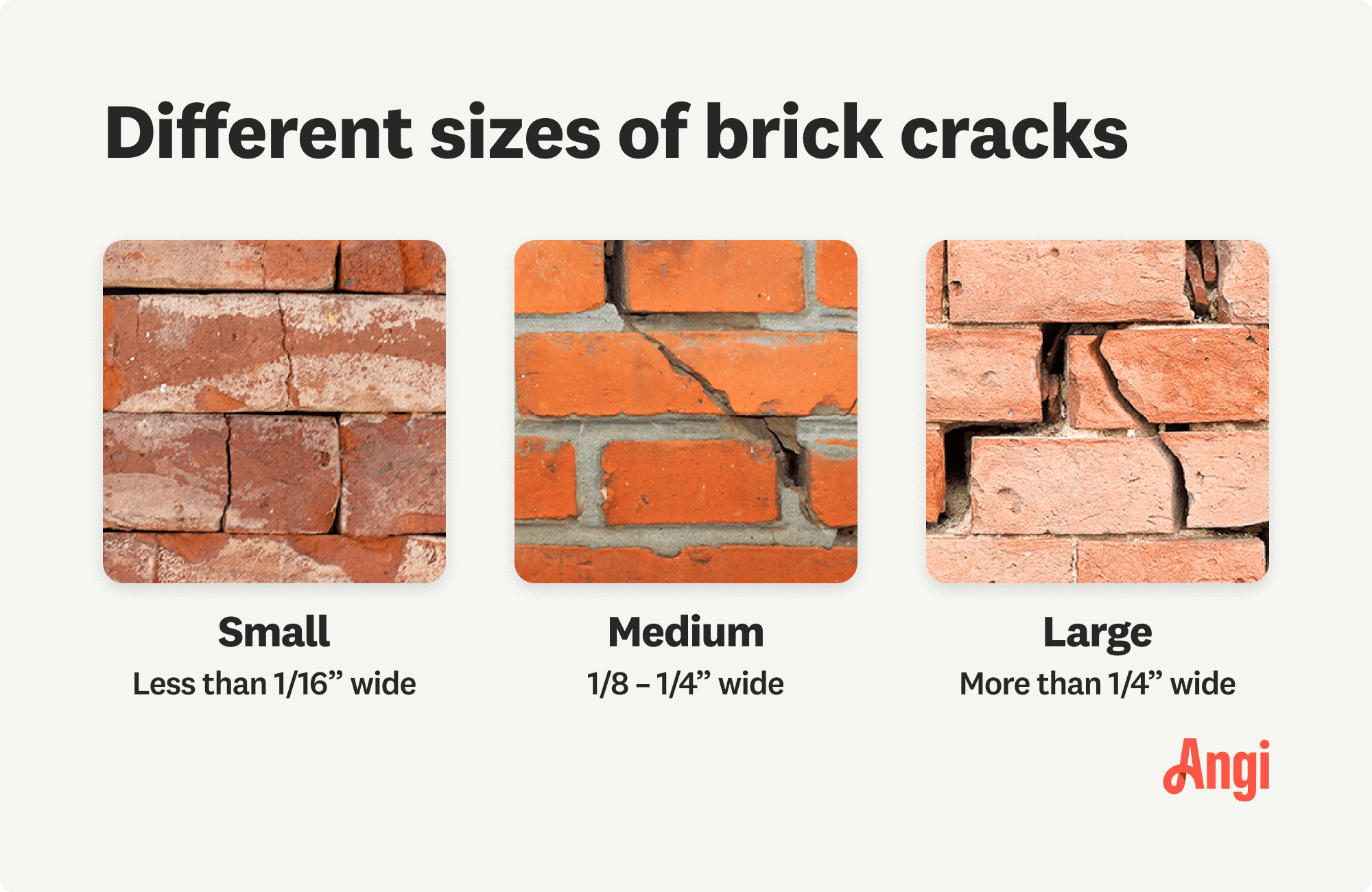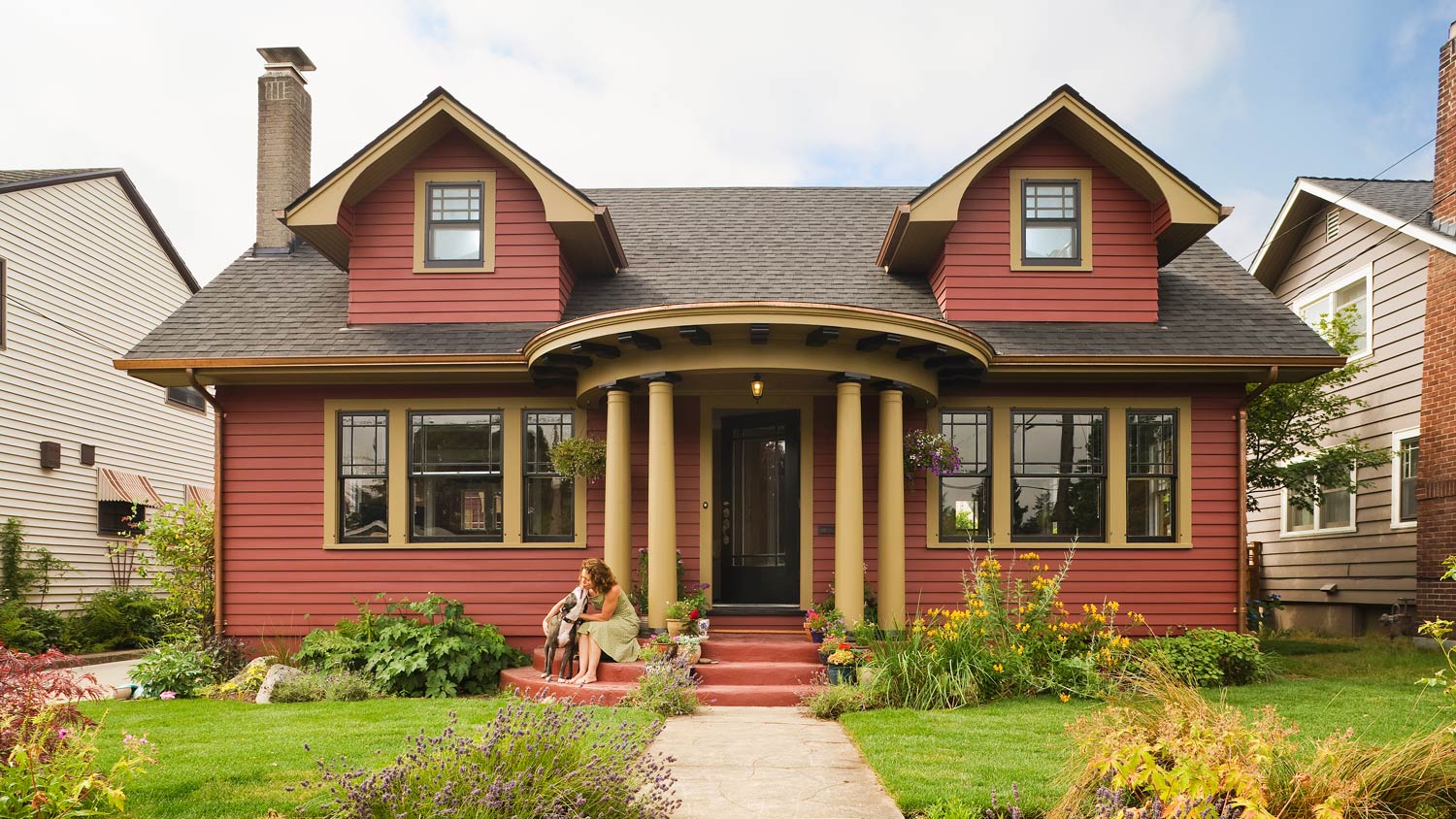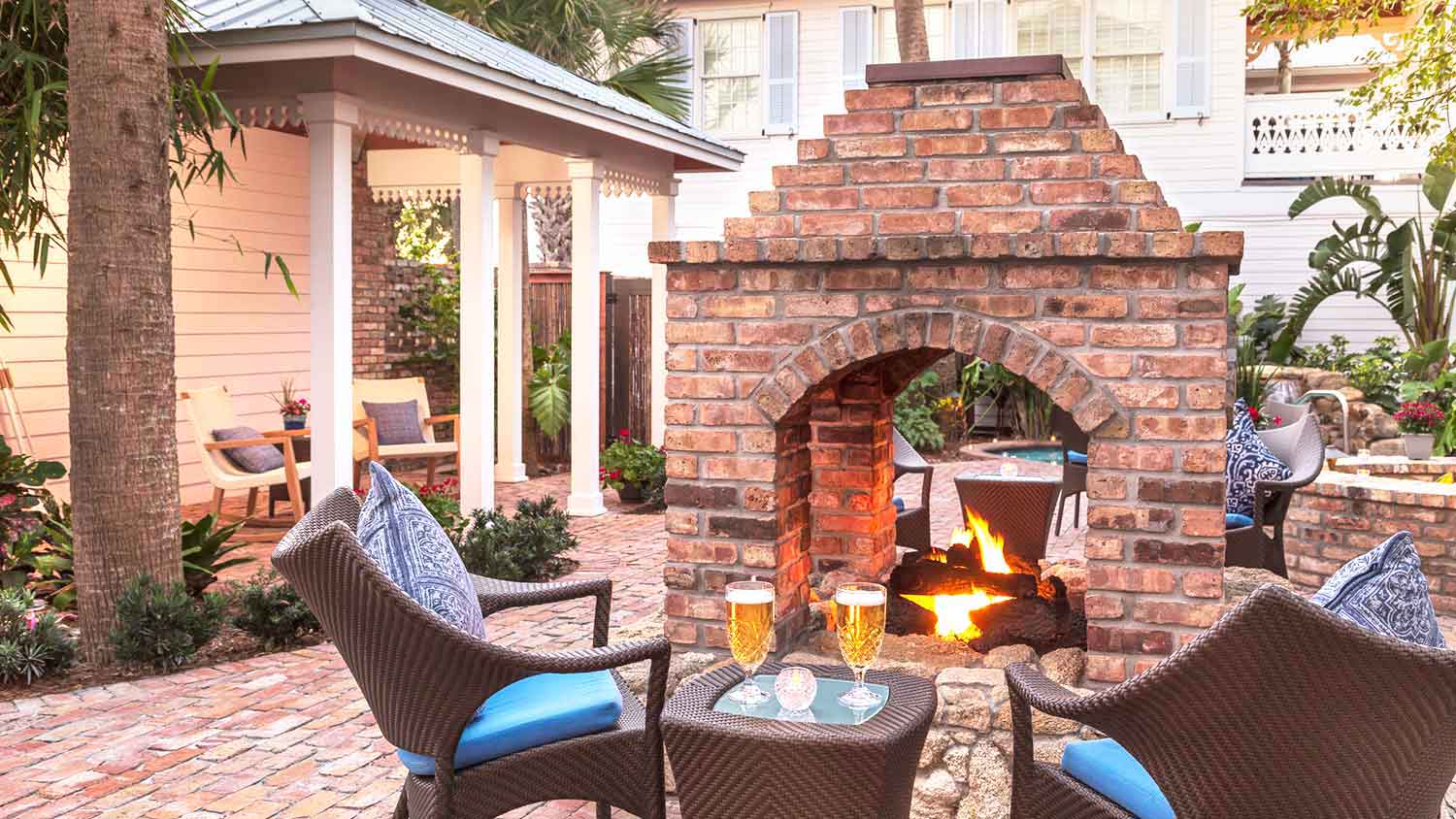
Door or window lintel replacement costs $400 on average, but there are ways you can save. On the other hand, complicated work will increase costs considerably.
While some brick cracks are serious, most you don’t need to worry about


Vertical cracks are more concerning than horizontal ones.
Small cracks are normal when a building settles.
Any cracks widening over time need professional inspection.
Moisture seepage and foundation movement are the main causes of cracks.
If you love the look of your cozy brick home, it could frighten you to see cracks start to appear. Brick homes have pros and cons, with cracks definitely being one of the cons.
However, as scary as they can look, some cracks are nothing to freak out over. With a little know-how, you can identify cracks on the walls, learn which of them poses a structural issue, and how to best move forward to fix them.
Recognizing early warning signs is important, but figuring out the right fix isn't always simple. Delaying professional help or attempting complex DIY repairs can lead to further damage and increased costs. With our network of local pros, you can hire a skilled professional to assess the issue and recommend the best solution.
Bricks are made of compressed baked clay with inflexible properties. As a result, they're more likely to crack when your house settles or due to external factors. Brick walls with small cracks are common and typically harmless. However, large brick cracks on the exterior of your house can indicate a foundation issue.
But what causes the brick to crack in the first place?
Different soil conditions can cause foundation shifting, leading the bricks to crack. Things like freezing and thawing and moisture in the soil usually cause wall cracks that can be easily fixed.
If exposed to water constantly, rainwater, leaking pipes, and blocked gutters can damage the brick walls and foundation. This requires repairing the leaking source and the cracks before they turn into something more serious.
If construction work is going on near your house, the constant vibration of heavy machinery can affect your home's foundation and brick walls. These can be serious, so if you’re noticing cracks in your walls that weren’t there before, contact local officials ASAP.

There are different types of cracks in brick walls, which can be defined by their location, depth, and appearance.
Cracks smaller than one-sixteenth of an inch aren’t typically serious. Repairing them before they spread and widen, however, is a good idea. This involves cleaning the area around the crack, widening the crack ever so slightly if it’s very thin, then filling the crack with masonry repair caulk or a specialized mortar. Once finished, clean the surface and paint if desired.
Small brick cracks are often easily repaired; however, when neglected, cosmetic cracks can turn into structural issues with time. The cost to repair a brick wall is relatively small compared to larger structural issues, so be sure to keep up with tending to these small imperfections.
Medium cracks are where concerns start to become well-founded. A hairline crack in your brick could be just one bad egg in the bunch, whereas medium cracks that spread across multiple bricks are cracks you need to fix straight away.
Medium cracks are cracks that are one-eighth of an inch to one-quarter of an inch wide. These types of cracks are often the first sign of underlying issues such as structural or foundation problems.
Large cracks need to be fixed immediately, and usually with the help of a professional. These cracks are those larger than one-quarter of an inch and more often than not are caused by serious structural problems.
Some reasons you should fix large cracks immediately are:
Structural integrity
Water infiltration and leakage
Aesthetics
Damage mitigation
Energy efficiency (cracks can lead to loss of heat or air conditioning)
Large cracks can be concerning, to say the least. Although they may seem like a large investment to fix, it’s almost always cheaper to fix the issue before it spreads. Small and medium-sized cracks may be okay for a while, but large cracks tend to spread if left untreated.
Vertical brick splitting in mortar joints is sometimes caused by warmer weather when bricks expand and shrink. Cracks that are wider at the top than they are at the bottom are often a sign of more serious problems such as a foundation issue.
Vertical cracks are not as common as the other types of cracks and need to be treated immediately. Due to the potential severity of the issue—taking into account also what you can’t see (i.e., your foundation)—it’s a good idea to call a professional to at least assess the damage, if not to perform the repairs.
Vertical cracks can often act as a funnel. This means that water will naturally flow into the widening crack. Debris such as pine needles, dead leaves, and anything else that rolls down your roof will also accumulate in the crack. If it’s water, that could lead to further structural damage. Needles, animal nests, and other debris could lead to further damage or even present a fire risk.
If you see cracks in your indoor brick walls, this could also mean breaks in your foundation. Be sure to monitor any gaps in your brick wall and whether the cracks are getting bigger or growing in number.
Long horizontal brick outdoor cracks can indicate a structural problem due to movement in the soil or deterioration of the material, especially in older homes if not properly maintained. To ease off the brick cracking, you need to learn about brick wall maintenance.
When you see long horizontal cracks, you need to consult a pro because this is a serious problem that needs to be repaired ASAP.
Stair-step cracks in your exterior brick wall generally mean that your house foundation is settling and sinking into the ground. Other signs like cracks in the drywall, doors or windows that are starting to warp, or floors that are inclined to slopes, warrant a closer look. If any of those additional signs appear, you need to call a local foundation professional as soon as possible.
Brick veneer tends to crack due to weather conditions when the brick and mortar joints expand and shrink. If not treated, brick veneer cracks are likely to become bigger over time. Brick veneer is usually attached fairly securely to the underlying brick or other structural wall, and if problems are not fixed, the issue with the veneer could spread, leading to serious structural damage.
If the cracks you see don't match any of the types mentioned above, you may need cosmetic brick repair. A local brick or masonry pro can help you get everything looking as good as new again.

Trying to determine the cost of brick crack repair is like asking how much a car costs. The range varies widely— a handy DIYer may be able to fix a small crack for the price of the mortar, while a large crack could cost thousands of dollars.
The normal range for a brick wall repair is $758 to $2,532 when using a professional mason. That probably won’t be necessary for the smallest of cracks, but for anything wider than two credit cards stacked together–if you can fit them in the slot, and the crack extends beyond one brick–you should call a local professional.
These professionals are able to make assessments beyond the skills of most DIYers. They are able to:
Assess the crack
Use specialized tools to measure the crack
Check the rest of the wall for structural issues and potential damages
Provide a professional outlook for repairs
A professional mason can provide expert guidance and, in some cases, you may still be able to fix the crack yourself. However, if the prognosis is concerning, it’s best to leave the job to a professional in order to avoid accelerating the damage.
Brick is strong and durable, but damaged brickwork brings up several issues—compromised structural integrity, moisture problems, and safety hazards—if it’s not immediately addressed. Hiring a professional masonry contractor removes a lot of the headache of trying to repair a brick wall yourself. Not to mention that they have tons of knowledge and experience to handle the job efficiently and safely. You just have to make sure you get the right mason out to your house.
To get a quick fix on your brick, you may be tempted to settle for the first masonry company you come across. Instead, take the time to connect with a few specialists before hiring them. A brief phone call can help gauge their experience, expertise, and cost. And before you decide if they’re a perfect fit for your needs, schedule an onsite consultation. This allows for both an accurate assessment of your problem and a precise estimate. Plus, it’s a great chance to ask any additional questions you might have missed during your initial conversation.
To find a qualified professional, use this list of questions to ask your masonry contractor:
Are you licensed or certified and can you share them?
How many years of experience do you have?
Do you have a brick specialty or are you more of a general mason?
Do you have insurance coverage and can I see proof?
Can you provide customer testimonials on your recent work?
Can you give me a written estimate for the project?
From average costs to expert advice, get all the answers you need to get your job done.

Door or window lintel replacement costs $400 on average, but there are ways you can save. On the other hand, complicated work will increase costs considerably.

The cost to brick a house depends on several factors, like labor costs, home size, and brick types. Use our guide to estimate your bricking costs.

The cost to replace brick front steps depends on the type of brick, square footage, pattern, and more. Learn how much you may spend on this project.

A bowing foundation wall can quickly become a major structural problem for your home. Learn why your wall is bowing and what you can do to fix it.

This guide estimates how much you can expect to pay for bricks, whether you're purchasing individual bricks or ordering a pallet for your home project.

You can hire a professional to fix a decaying brick wall, or you can save money and do it yourself by learning how to tuckpoint brick using the steps below.